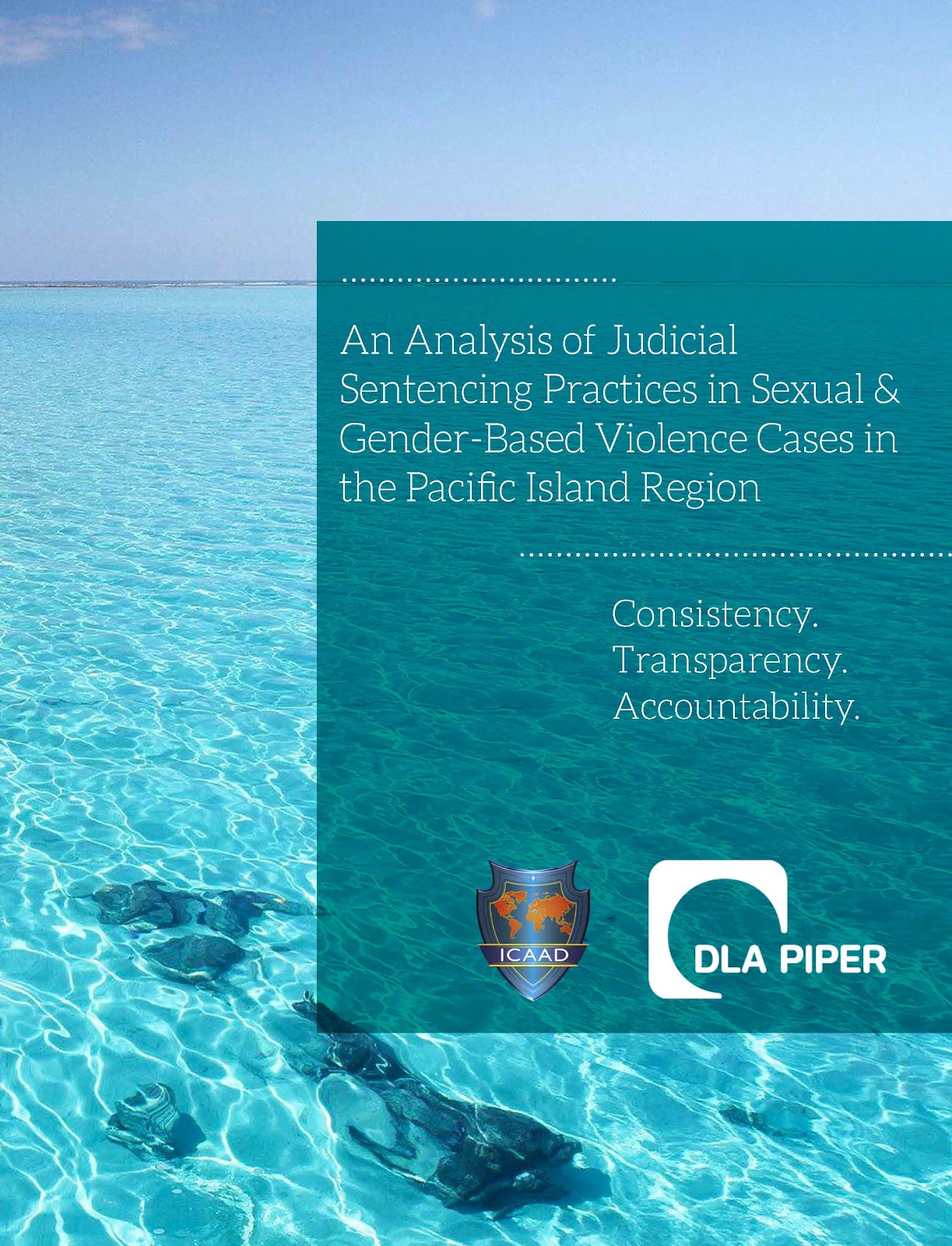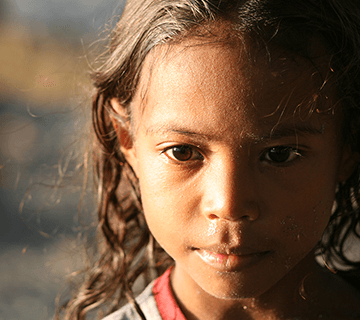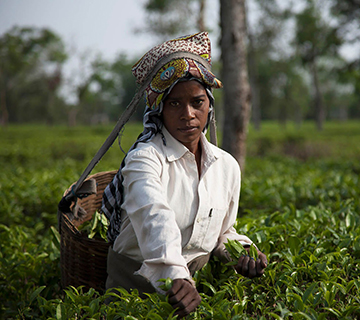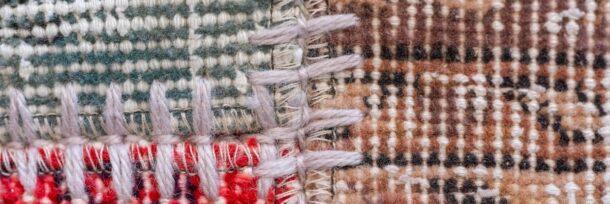TrackGBV
Data is Vital to Uncovering Patterns of Gender Discrimination
Program Area:
Data & Research
Partners:
Law Firms:
DLA Piper
Clifford Chance
Manatt, Phelps & Phillips
Linklaters
Tech:
Conduent
University:
USP/ PacLII
Location:
12 Pacific Island Countries;
14 Caribbean Countries
Tech Build:
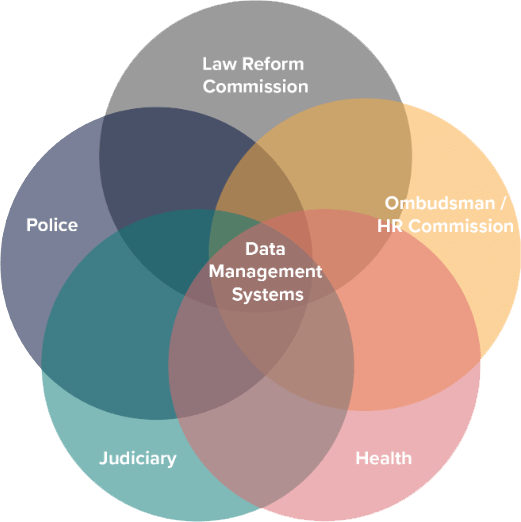
When NGOs use data to support their advocacy, they can make systemic change happen. We assist by developing tools and methodologies that uncover discrimination.
The Challenge
The understanding that discrimination and bias can lead to violence is intuitive. However, proving the causal link between bias and violence requires extensive evidence and analysis. Previous studies have shown how gender inequity causes gender-based violence (GBV), affecting over one-third of women worldwide. Addressing this is difficult because discrimination permeates legal and judicial systems, and is reinforced by cultural and social norms.
Our goal is to show how gender inequity manifests within judicial systems – places where victims of gender-based violence often turn to when seeking justice. By highlighting where bias is taking place, we are working to stamp out discrimination within judiciaries and support more consistent and equitable decision-making.
Intervention
We began conducting research in the Pacific Island region after recognizing that information gaps were masking the link between bias in the judicial systems, limited access to justice, disproportionately low sentences in GBV cases, and societal acceptance of violence against women and girls. This lack of a systematic mechanism to measure bias levels led to the TrackGBV initiative, where we identify key indicators of bias in judicial decisions including gender stereotypes, specific customary practices, and myths (all referred to as “contentious factors”).
By allowing gender bias to play a role in decision making, judges are creating additional barriers for women to access justice because there is a lack of accountability for violent crimes. TrackGBV addresses this by providing critical information to stakeholders to increase transparency, consistency, and accountability in GBV cases.
Key Research
ICAAD analyzed data from approximately 2,500 GBV cases from seven Pacific Island Countries (PIC) between 2000-2020.
Findings include:
- In 77% of cases, the age of the victim/survivor was between 6-17 years
- 88% of cases involved Sexual Violence (SV), with a small percentage involving domestic violence only
- In 73% of cases, contentious factors were raised by judicial officers
- In 51.9% of cases, contentious factors led to a sentence reduction
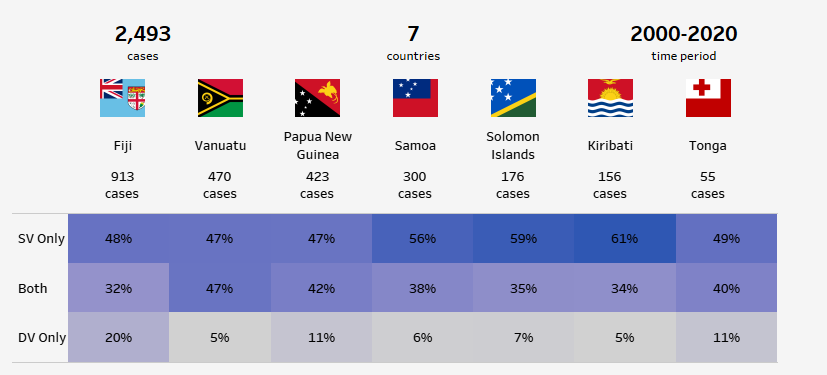
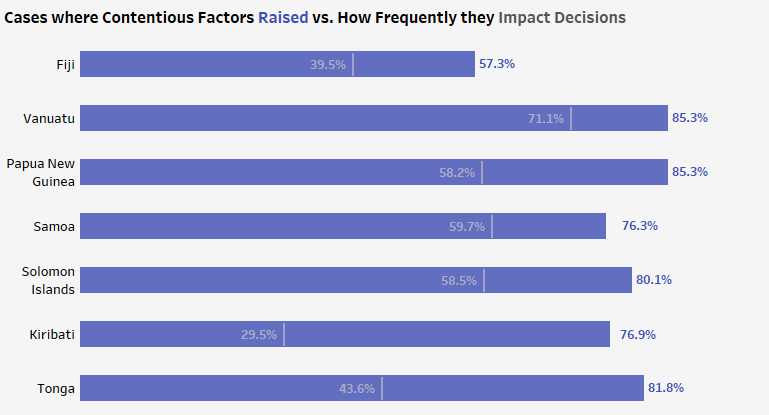
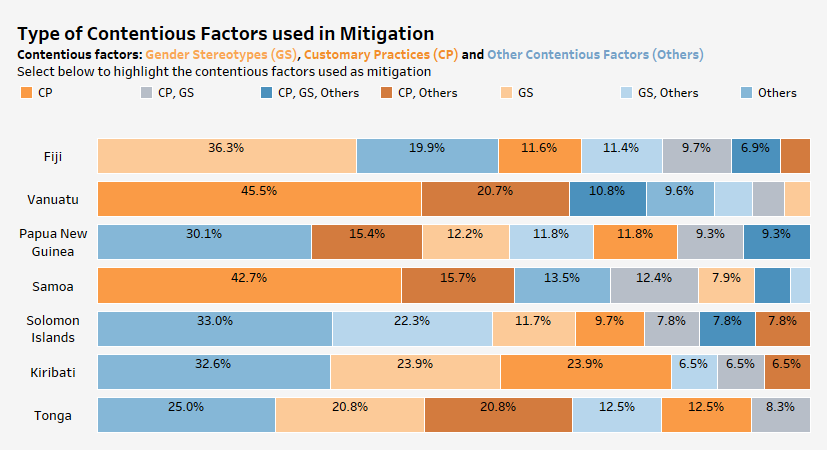
Above, you can see the prevalence of customary practices (such as forgiveness ceremonies), gender stereotyping (such as rape myths and sole breadwinner arguments) and other factors (such as the perpetrator’s good character) leading to sentence reductions.
Outcomes
We launched the TrackGBV Data Dashboard in November 2021 as a public resource. It has transformed our ability to conduct advocacy and training by providing a user-friendly tool for our civil society and government partners. We have presented the Dashboard to organizations across the Pacific and the Caribbean, have drafted numerous reports that incorporate its visualizations, and will continue to ensure it is accessible to all. Local civil society organizations are also using it to support their advocacy, and government champions are using it to monitor changes in policy.
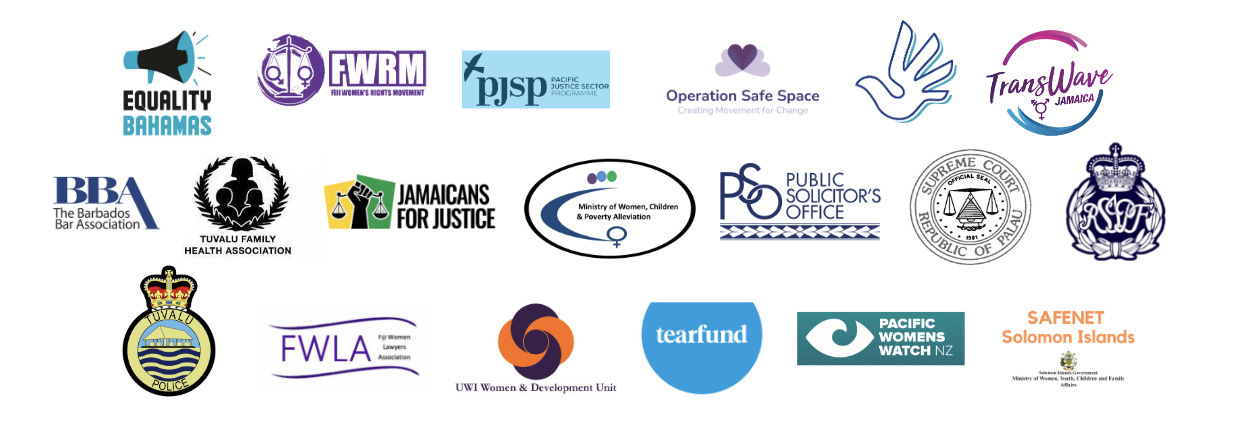
Testimonials
On the Report, An Analysis of Judicial Sentencing Practices in Sexual and Gender-Based Violence Cases in the Pacific Island Region:
“DLA Piper is proud to partner with ICAAD to deliver this report, which provides crucial evidence of the effect that gender discrimination has on sentencing decisions by courts. This report highlights the extent to which gender bias continues to prevent women from accessing justice on an equal basis with men.” – Emily Christie
On the Dashboard:
“We feel that the next step is precisely this kind of project, where we can say to our people and to the state, ‘Look, this is what is happening in the courts, this is how it is happening and this is how we can try to stop it.’” – Justice Jacqueline Cornelius, Barbados High Court
Impact
TrackGBV has already made a significant impact in the region. As a result of our data and research:
- Solomon Islands amended its sexual offense legislation
- Fijian judiciary issued practice directives for Magistrates that were co-drafted with ICAAD
- Case law analysis methodology was adopted by local non-governmental organizations (NGOs)
- Pacific Judicial Strengthening Initiative integrated our findings into their toolkits for judicial training
- ICAAD drafted a set of five directives for Samoa, based on collaboration with members from Samoa’s Office of the Ombudsman and National Human Rights Institution, the Ministry of Justice and our pro bono partners during a seven-week interactive train-the-trainers program. These directives will be introduced to the judiciary.
- The Ombudsman’s Office in Samoa shared their experiences from our training with the Chiefs of the Village Fono (Assembly), to recommend reforms to the Village Fono Act to be more inclusive of women, children, and those with disabilities

